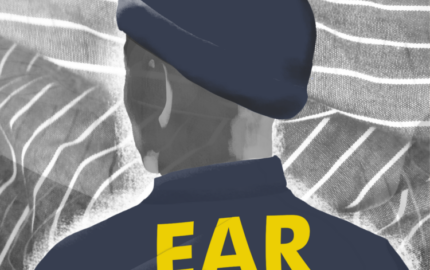Newspapers struggle with representing incendiary topics in a way that explains without exploiting. Last month, The Plain Dealer’s Joanna Connors addressed sexual assault, poverty, and race in a single project. “Beyond Rape,” a 16-page supplement to the Cleveland newspaper, recounts Connors’ rape decades ago then traces her efforts to find her rapist, his family, and his other victims.
“Beyond Rape” delivers on its title literally via Connors’ first person narration of breaking the hold the rape had on her life. But the project goes beyond the assault in other senses, too, by placing the rape in its social context and using sidebars to give readers safety tips and statistics on sexual assault.
Throughout the 20,000-word piece, Connors repeatedly shows control over the tone and texture of her writing. Describing the toll of the assault on her personal life, she writes, “Our silence clanged against the walls of our marriage.” When she and the rapist’s sister realize they have both been raped, Connors underlines the starkly different consequences of their experiences, then uses dialogue to reconnect them (“It’s terrifying when you think they’re going to kill you.”/ “I know.”).
We grieve for Connors as she digs in the dirt with her hands at the rapist’s grave. We feel for the rapist’s family and even for the rapist himself. In “Beyond Rape,” Connors transcends the standard snapshot image of assault to narrate a story that began long before her terrible encounter with David Francis in a theater: a story of unremitting violence in a world invisible to many people, a story that offers some resolution to the author and to readers but never really ends.
Read “Beyond Rape,” by Joanna Connors
“Beyond Rape” delivers on its title literally via Connors’ first person narration of breaking the hold the rape had on her life. But the project goes beyond the assault in other senses, too, by placing the rape in its social context and using sidebars to give readers safety tips and statistics on sexual assault.
Throughout the 20,000-word piece, Connors repeatedly shows control over the tone and texture of her writing. Describing the toll of the assault on her personal life, she writes, “Our silence clanged against the walls of our marriage.” When she and the rapist’s sister realize they have both been raped, Connors underlines the starkly different consequences of their experiences, then uses dialogue to reconnect them (“It’s terrifying when you think they’re going to kill you.”/ “I know.”).
We grieve for Connors as she digs in the dirt with her hands at the rapist’s grave. We feel for the rapist’s family and even for the rapist himself. In “Beyond Rape,” Connors transcends the standard snapshot image of assault to narrate a story that began long before her terrible encounter with David Francis in a theater: a story of unremitting violence in a world invisible to many people, a story that offers some resolution to the author and to readers but never really ends.
Read “Beyond Rape,” by Joanna Connors


